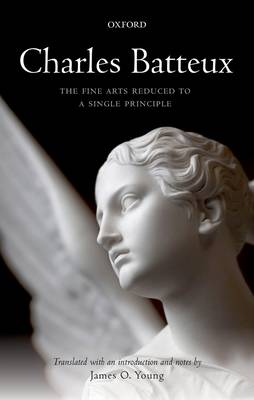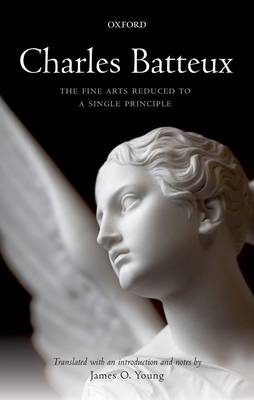
En raison d'une grêve chez bpost, votre commande pourrait être retardée. Vous avez besoin d’un livre rapidement ? Nos magasins vous accueillent à bras ouverts !
- Retrait gratuit dans votre magasin Club
- 7.000.000 titres dans notre catalogue
- Payer en toute sécurité
- Toujours un magasin près de chez vous
En raison de la grêve chez bpost, votre commande pourrait être retardée. Vous avez besoin d’un livre rapidement ? Nos magasins vous accueillent à bras ouverts !
- Retrait gratuit dans votre magasin Club
- 7.000.0000 titres dans notre catalogue
- Payer en toute sécurité
- Toujours un magasin près de chez vous
149,95 €
+ 299 points
Description
The Fine Arts Reduced to a Single Principle (1746) by Charles Batteux was arguably the most influential work on aesthetics published in the eighteenth century. It influenced every major aesthetician in the second half of the century: Diderot, Herder, Hume, Kant, Lessing, Mendelssohn, and others either adopted his views or reacted against them. It is the work generally credited with establishing the modern system of the arts: poetry, painting, music, sculpture and dance. Batteux's book is also an invaluable aid to the interpretation of the arts of eighteenth century. And yet there has never been a complete or reliable translation of The Fine Arts into English. Now James O. Young, a leading contemporary philosopher of art, has provided an eminently readable and accurate translation. It is fully annotated and comes with a comprehensive introduction that identifies the figures who influenced Batteux and the writers who were, in turn, influenced by him. The introduction also discusses the ways in which The Fine Arts has continuing philosophical interest. In particular, Young demonstrates that Batteux's work is an important contribution to aesthetic cognitivism (the view that works of art contribute importantly to knowledge) and that Batteux made a significant contribution to understanding the expressiveness of music. This book will be of interest to everyone interested in the arts of the eighteenth century, French studies, the history of European ideas, and philosophy of art.
Spécifications
Parties prenantes
- Auteur(s) :
- Editeur:
Contenu
- Nombre de pages :
- 232
- Langue:
- Anglais
Caractéristiques
- EAN:
- 9780198747116
- Date de parution :
- 01-12-15
- Format:
- Livre relié
- Format numérique:
- Genaaid
- Dimensions :
- 142 mm x 218 mm
- Poids :
- 408 g

Les avis
Nous publions uniquement les avis qui respectent les conditions requises. Consultez nos conditions pour les avis.






